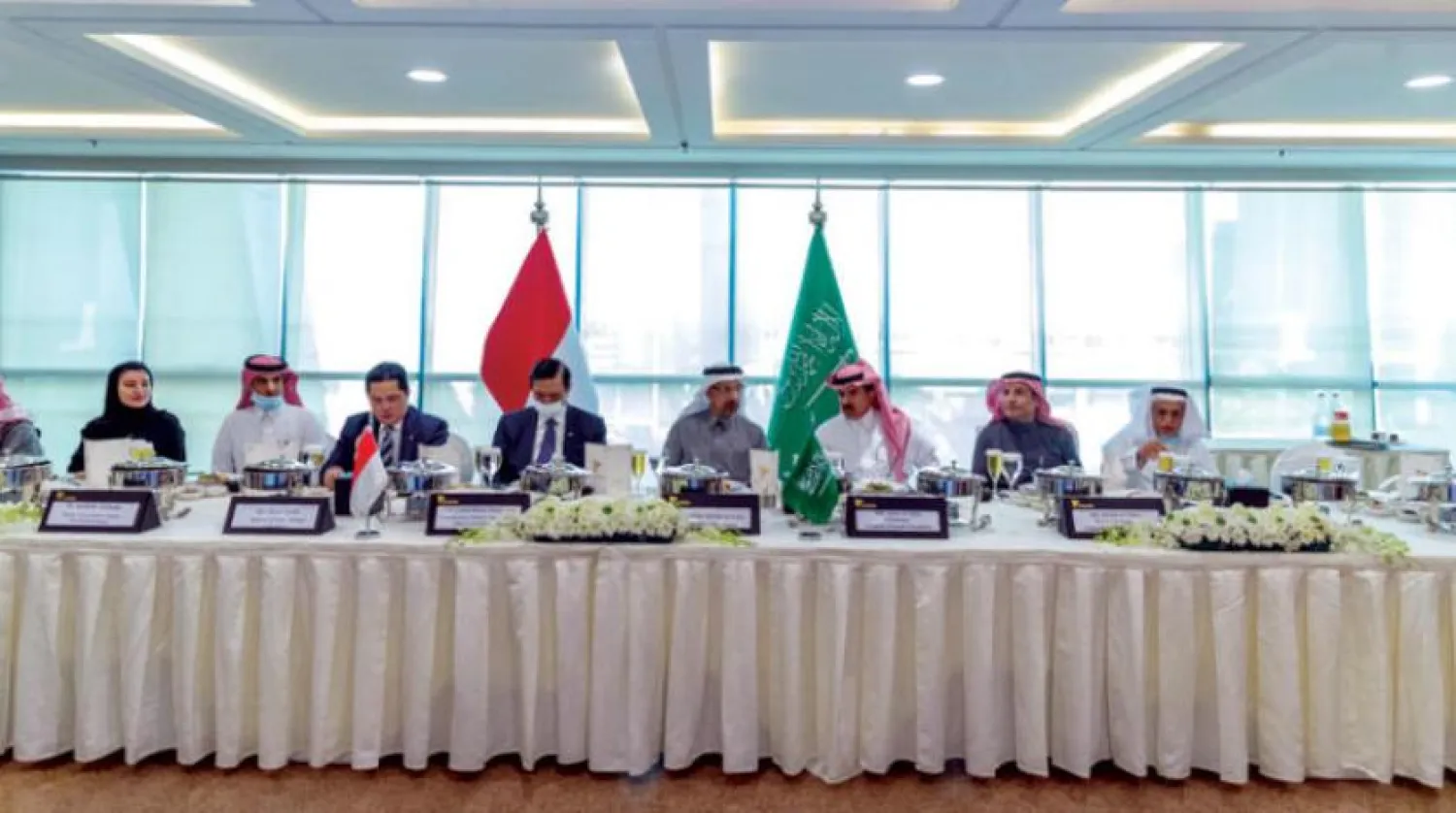Saudi Minister of Investment Khalid al-Falih asserted that Saudi Arabia continues to support and diversify its national economy within the framework of Vision 2030.
Speaking at the Saudi-Indonesian Business Forum, Falih said that improving the business environment and legislation, liberalizing the market and increasing the foreign investments had created many opportunities and improved foreign direct investment (FDI) by 12 percent.
The forum was organized by the Saudi Union of Chambers and attended by Indonesian Coordinating Minister for Maritime and Investments Affairs Luhut Binsar Pandjaitan, Minister of State-Owned Enterprises Erick Thohir, and the Chairman of the Saudi Chambers' Council Ajlan bin Abdulaziz al-Ajlan.
The Saudi minister said it is important to exploit the capabilities of both countries through joint projects, stressing the need to enhance the role of the business sector.
Falih called on the business sectors to translate this partnership into joint business and investments.
The two countries, as influential economic forces of the G20, faced the challenges of the coronavirus pandemic and were able to enhance recovery through various measures and initiatives, stated the minister.
He called for boosting export exchange, in light of the great opportunities provided by the Saudi and Indonesian economies, the promising programs and strong infrastructure.
For his part, Pandjaitan discussed his country's economic, investment and natural potential, saying there were huge investment opportunities in the digital economy, including online shopping and banking.
He explained that his country has made great efforts to recover from the repercussions of the pandemic by supporting the economy and providing financial incentives to support the GDP.
The Minister called on Saudi investors to seize the promising opportunities in Indonesia, especially in transformative industries, hydroelectricity and the digital economy sectors.
Ajlan called for strengthening and activating the efforts of the joint Saudi-Indonesian Business Council.
He said the volume of bilateral trade exchange amounted to $5.4 billion dollars, including non-oil commodities, noting that he looks forward to completing the trade talks with Indonesian counterparts and their participation in the programs and projects of Vision 2030.
During the forum, the Ministry of Investment highlighted its role in serving investors, along with the efforts to boost the investment environment in Saudi Arabia and increase domestic and foreign investments.
It also addressed Vision 2030 and its objectives to boost the contributions of various sectors, such as the small and medium enterprises (SMEs), the private sector, oil and gas, and foreign direct investment.
The presentation also mentioned the incentives to choose Saudi Arabia as an investment destination, such as the innovative reforms brought about by Vision 2030, the encouraging business environment, the strategic location and innovative real estate solutions.









